Former frontman of The Soft Pack gets weird on his new pandemic-tinged release
“Dirty Job” is an infectious mix of weirdo pop and pandemic-era anxieties
Matt Lamkin was the frontman for the The Soft Pack, one of a flurry of buzzy San Diego bands to emerge in the late aughts, pictured here performing at the now-defunct Bar Pink circa 2008. From left to right Matt Lamkin on the mic, Matty McLoughlin on guitar, Dave Lantzman on bass, and Brian Hill on drums. Photo by Chad Kelco
November 30, 2021
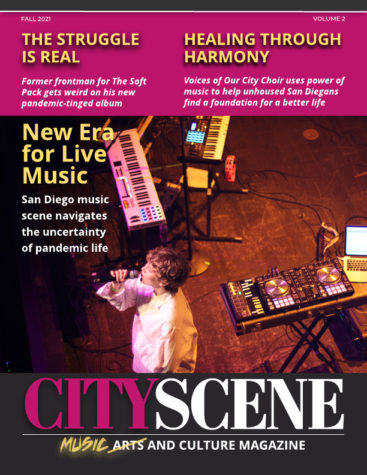 This story was featured in the fall 2021 edition of CityScene magazine.
This story was featured in the fall 2021 edition of CityScene magazine.
As Matt Lamkin thinks about his new album “Dirty Job,” the former frontman for The Soft Pack finds humor in the fact that it may be his weirdest.
Released in August, it came at a time when he was prioritizing his mental health more than ever before.
“It’s funny. I’m doing better … and the head state of the singer sounds worse,” the San Diego City College alum said.
“It’s not so much that the unhinged-ness is like, ‘oh, this is a bad sign, Matt’s off his rocker,’” Lamkin said. “It’s more like, ‘this is actually what Matt’s been holding in this whole time.’”
Lamkin said “Dirty Job” was largely shaped by the stresses of the COVID-19 pandemic. But the pandemic, he said, also provided him an opportunity to focus on fostering positive behaviors, and a renewed sense of artistic freedom.
The idea to put out a new solo album actually came from his girlfriend Claire Acosta, with whom he lives in Valle De Guadalupe, Mexico’s wine country just an hour south of the border.
Lamkin hadn’t released anything since 2016. Acosta pushed him to do a quarantine album, he said, referring to the flurry of less formal, more demo-level albums released during the pandemic by everyone from King Gizzard and the Lizard Wizard to Drake.
After digging around for some ideas he came out with what he called a collection of “odds and ends.”
And “Dirty Job” is indeed that.
Gone is the tight, formulaic garage punk that defined Lamkin’s career in The Soft Pack. The 16 minutes of this release range from otherworldly sonic noodling to found-sound iPhone recordings to weirdo pop gems.
“The weirdness comes from a mix of kind of experimenting … and then also just the effects of the quarantine and freaking out during the pandemic,” Lamkin said. “That’s why a lot of the stuff is a little more tweaked out, or informal, or crazed.”
At times infectious, and at others perplexing, “Dirty Job” channels all of the wild, uncertain nature of pandemic life.
The song “Duet,” for example, is a 30-second phone recording of what sounds like two weed whackers, while “Shampoo Drew” is 90 seconds of hypnotic outer space beats.
Even the more seemingly straightforward tracks like “Mad Dog 4 U” have glimmers of that weirdness.
The song begins with a series of sounds that can be loosely described as mouth noises as catchy as they are odd. It then unfolds into a strummy, sunsoaked pop tune, albeit one about alcoholism and obsessive behavior.
Fellow City College alum Andrew Miller, who’s played in projects like Dum Dum Girls and Kristin Kontrol, produced the album. He helped Lamkin refine some of the rough sketches and flesh out instrumentation.
Miller said the pandemic forced them to keep the production team small, but that independence ended up providing a sense of freedom.
“You’re not feeling like you have to make a record that sounds a certain way, or that you have to satisfy a bunch of band members,” Miller said. “It made us feel like we could just do whatever we wanted.”
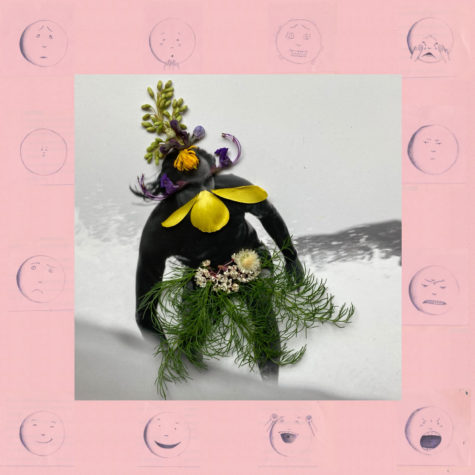
Lamkin’s previous project, The Soft Pack, wrote infectious hook-laden garage punk and emerged in the late 2000s.
It was a time when San Diego’s music scene, defined by buzzy lo-fi bands like Crocodiles, Dum Dum Girls and Wavves, seemed ascendent. Even Rolling Stone was taking note, however shallow.
Lamkin said in the early days he and his band were very unskilled musicians. But trying to keep the train going down the tracks during live performances was all part of the rush for him.
He said working on “Dirty Job” was something of a return to that feeling.
“It’s like, I’m gonna come to the world with a little uncertainty and feel that kind of excitement again,” Lamkin said.
The Soft Pack rose to prominence quickly, and a week and a half after the release of its eponymous debut album, the band was playing the lead single, “Answer To Yourself,” live on the Late Show with David Letterman.
In 2012, The Soft Pack released its second album, “Strapped,” but there began to be too many expectations — everyone from the fans, to management, to the members of the band wanted to do something different.
“At the time, we were young drunk guys in our 20s who didn’t know how to communicate with each other,” Lamkin said.
In the end The Soft Pack didn’t break up so much as they fell apart.
“I just didn’t see myself being able to make music that I loved any further moving forward, and I wasn’t making any money,” he said. “So it was kind of like … it didn’t check any of the boxes.”
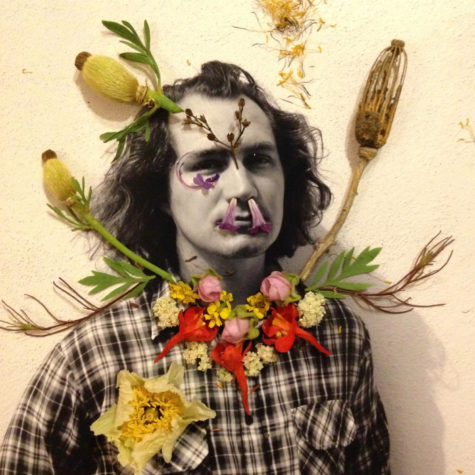
Now on his own, there’s been a fluidity to Lamkin’s solo albums, like an artist continually realigning his output to match the taste of a very particular audience — himself.
“Dirty Job,” with all of its magnetic off-kilterness, is an entirely different animal than his soaring 2016 solo debut, “Where I’m Matt,” released on local label Volar Records.
And that album was a noteworthy departure from his output with The Soft Pack.
“I feel like this album is probably not for everyone,” he said, “but there are moments that are more for everyone than I’ve ever had.”
Lamkin said he’s always sought to be the one willing to say what everyone else is just thinking. That blunt honesty shines through on the album’s second track, “The Struggle Is Real.”
On it, he blankly declares, “I’m fucking dying over here.”
The song, infected with the exact breed of resigned bewilderment that reigned during the early lockdowns, is unquestionably a product of the pandemic. It’s a melancholic, yet oddly celebratory ode to the mind-numbing effects of isolation and repetition.
“Every day the same thing, every day the same thing / The struggle is real, this is how I feel / Can I get some help over here?,” Lamkin repeats throughout, allowing the lines to take different melodic shapes, like he’s trying to say something new with the same words.
“It’s borderline mantra, borderline, like … psychosis,” Lamkin said.
He was grateful to have been in Valle De Guadalupe during the pandemic, which allowed him easy access to the outdoors, unlike his friends in New York and Los Angeles.
But even so, the pandemic was a stressful time. He’s a social person and, like many people, the lack of socialization was destabilizing.
“It was kind of like a pressure cooker,” Lamkin said. “You had to deal with things that, maybe during normal life you’d be like, ‘I’ll just go socialize and ignore this.’”
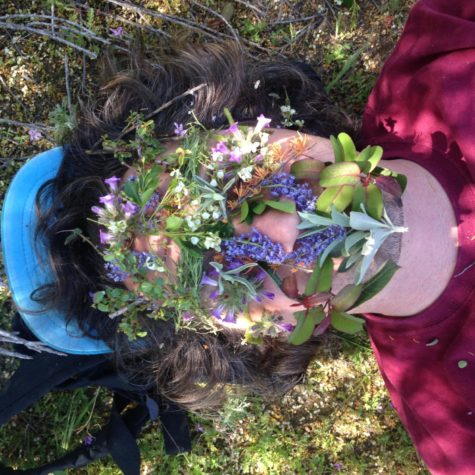
He said it ended up forcing him to actively choose to pursue positive behaviors, like committing to therapy, staying physically active, cutting back on drinking, and bettering communication with his girlfriend Acosta, with whom he co-wrote “New Boyfriend.”
Instrumentally the song’s a pretty standard 50s rock, almost doo-woppy sing-along, but that familiarity is countervailed by Lamkin’s teary, sardonic warble.
“We were just joking around one day and Claire started singing ‘I’m gonna kiss my new boyfriend tonight’ and I was like, ‘that’s great!,’” he said.
There’s a lot of that immediacy in this album, Lamkin explained.
“It’s in those kind of moments where we go, ‘oh, that’s fucking rad, let’s do that,’” he said. “And not overthinking, ‘is that too bubble gum? Or is that too stupid?’
“It’s like a return to a kind of creative freedom.”
Lamkin said lately he’s trying to approach songwriting like a release valve that allows him to vent off some of the insecurities and frustrations that he’s newly committed to addressing head-on.
In the past he’d tried writing songs meant for larger audiences, but felt like it only made them worse.
“That’s a specific skill, writing songs for the masses and I don’t really have it or even care to develop it,” he said.
“So once you kind of realize that, you know … that’s fine … it feels good.”



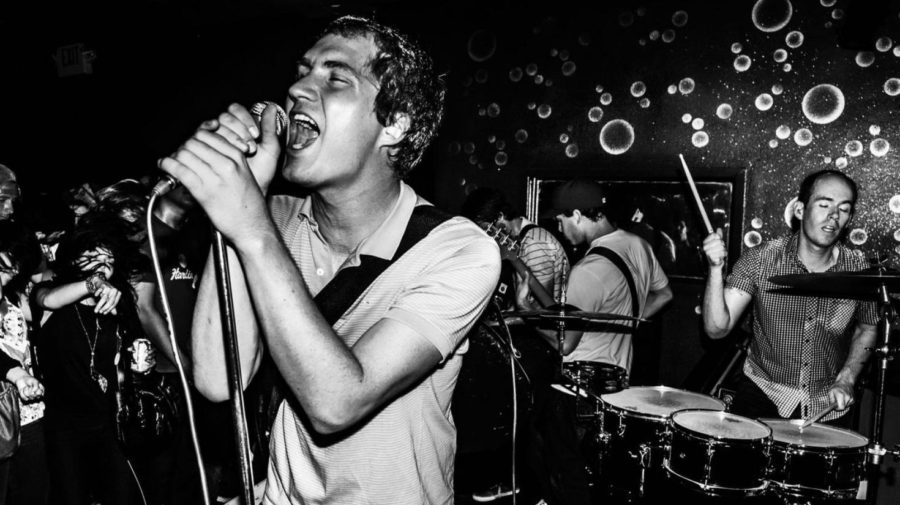
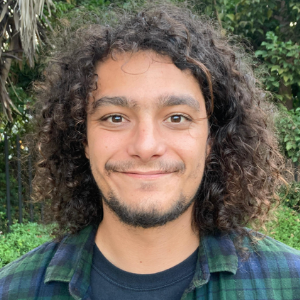









Ricky Soltero • Dec 7, 2021 at 7:00 pm
Great article Jakob! Loved the Soft Pack and love Matt’s solo stuff. Also, glad City Times is alive and well
Wendy Wiehl • Dec 1, 2021 at 7:05 pm
Thanks for this article! I was a fan of The Soft Pack and it was great to read up on what Matt is doing now, and to hear this new music.